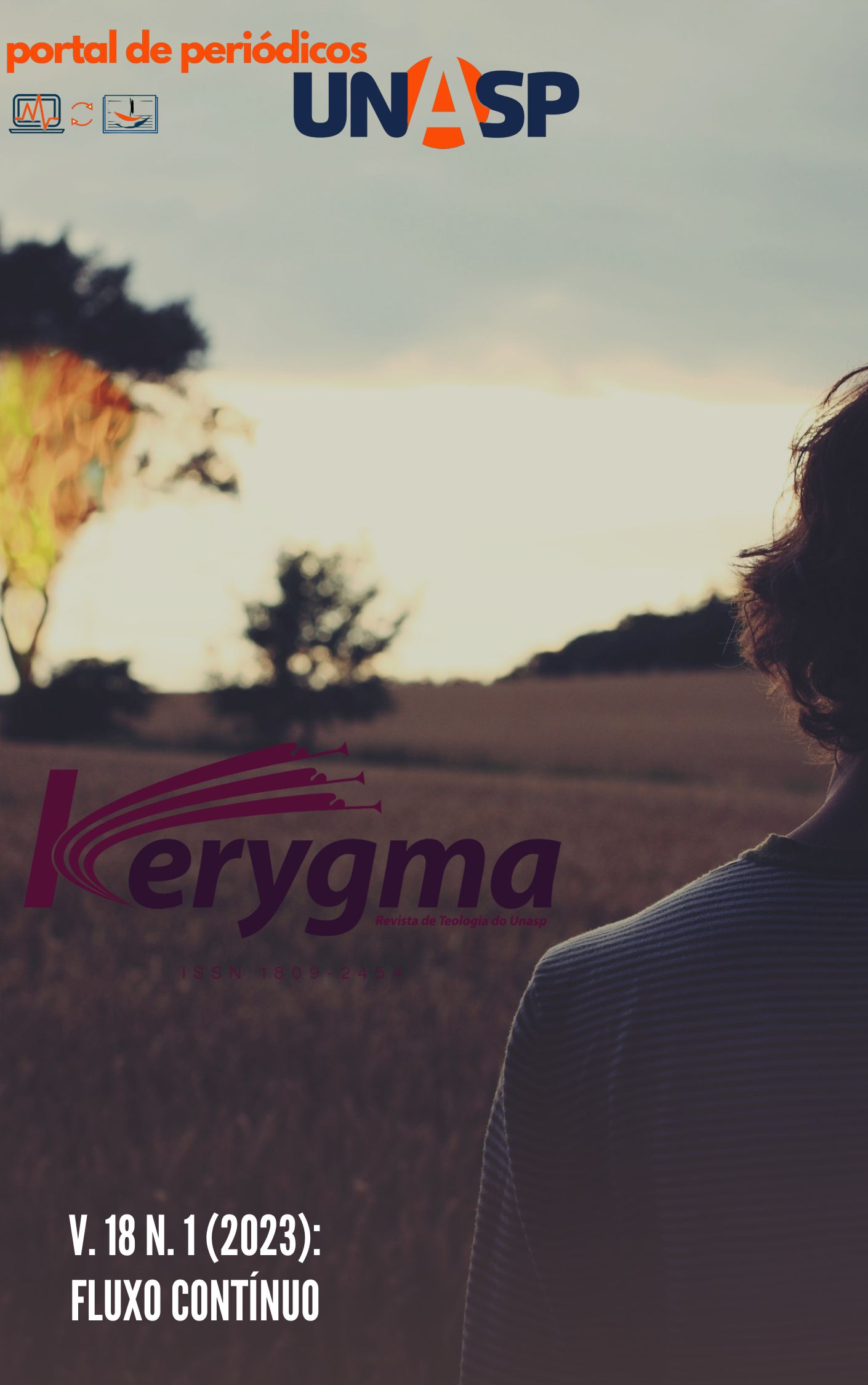The conception of time in the writings of Cullmann and Canale: similarities, differences and complementations
DOI:
https://doi.org/10.19141/1809-2454.kerygma.v18.n1.pe1620Keywords:
Cullmann, Canale, Salvation history, SanctuaryAbstract
Since the second century of the early Christian church, Christian scholars have conceived the plan of salvation from the point of view of divine timelessness. Throughout the history of the church, the dogmas of immutability and impassibility have been perpetuated. However, returning to New Testament biblical exegesis, in 1946 Oscar Cullmann, a Lutheran theologian, defended temporality. In Adventist theology, in 1983 Fernando Canale defended his thesis in the area of systematic theology on the temporality of God. The objective of this research is to compare the writings of Cullmann and Canale regarding temporality, verifying their respective similarities and complementations. This study uses the historical-bibliographic method as a research tool. The research concludes that while Cullmann developed the theme of temporality from the perspective of Christ's earthly ministry, Canale did so from the perspective of the heavenly ministry. If on the one hand Cullmann wrote with interest in the line of salvation history, Canale contributed to the relationship between the heavenly sanctuary and the plan of salvation. Both contributed to the rebuilding of biblical-historical-temporal thought.
Downloads
References
CANALE, Fernando. Philosophical foundations and the biblical sanctuary. Andrews University Seminary Studies, v. 36, n. 2, p. 183-206, 1998. Disponível em: https://digitalcommons.andrews.edu/cgi/viewcontent.cgi?article=2775&context=auss. Acesso em 26 set. 2024.
CANALE, Fernando. From vision to system: finishing the task of adventist biblical and systematic theologies - part II. Journal of the Adventist Theological Society, v. 16, n. 1-2, p. 114-142, 2005. Disponível em: https://www.atsjats.org/07canale-systematics2-05.pdf. Acesso em 26 set. 2024.
CANALE, Fernando. From vision to system: finishing the task of adventist theology; part III sanctuary and hermeneutics. Journal of the Adventist Theological Society, v. 17, no. 2, p. 36-80, 2006. Disponível em: https://www.atsjats.org/05canale-visionsystem3-06-2.pdf. Acesso em: 26 set. 2024.
CANALE, Fernando. From vision to system: finishing the task of adventist theology part I: historical review. Journal of the Adventist Theological Society, v. 15, no. 2, p. 5-39, 2004. Disponível em: https://www.atsjats.org/03-canale-vision-syste-41de.pdf. Acesso em: 26 set. 2024.
CANALE, Fernando. Doutrina de Deus. In: DEDEREN, R. Tratado de teologia. 1. ed. Tatuí: Casa Publicadora Brasileira, 2011a. p. 120-179.
CANALE, Fernando. O princípio cognitivo da teologia cristã: um estudo hermenêutico sobre revelação e inspiração. 1. ed. Engenheiro Coelho: Unaspress, 2011b.
CANALE, Fernando. The eclipse of scripture and the protestantization of the adventist mind: part 1: the assumed compatibility of adventism with evangelical theology and ministerial practices. Journal of the Adventist Theological Society, v. 21, n. 1-2, p. 133-165, 2010. Disponível em: https://www.atsjats.org/canale-the-eclispe-of-scripture-pt-1.pdf. Acesso em: 26 set. 2024.
CULLMANN, Oscar. Cristo e o tempo. 2ª ed. São Paulo: Fonte Editorial, 2020.
GRAF, Roy. La articulación de la teología adventista, Desmond Ford y la doctrina del santuario. Theologika, v. 33, no. 2, p. 200-211, 2018. Disponível em: https://theologika.upeu.edu.pe/index.php/r_theologika/article/view/1118/1561. Acesso em: 26 set. 2024.
Downloads
Published
How to Cite
Issue
Section
License
Copyright (c) 2023 Kerygma

This work is licensed under a Creative Commons Attribution 4.0 International License.
Copyright Statement
In summary, authors who publish in Kerygma must agree that:
-
Once accepted for publication, the copyright of the articles is transferred to Kerygma.
-
All third-party materials used in the text must be properly referenced.
-
Authors must hold the rights or permissions for the use of images, tables, and other graphic materials.
-
Authors guarantee that the submitted manuscript is original, of their own authorship, and has not been submitted or published elsewhere.
-
The opinions and ideas expressed in the texts are the sole responsibility of the authors and do not necessarily reflect the views of the journal.
-
The editors reserve the right to make textual revisions and adjustments in accordance with the journal’s editorial standards.
-
Authors retain copyright and grant the journal the right of first publication, with the work licensed under the Creative Commons Attribution–NonCommercial 4.0 International License.
-
Authors authorize the reproduction and adaptation of the material by Kerygma, with the authors’ participation or express authorization when required.
-
The journal may distribute, store, archive, and make the articles available through any physical or digital means, whether free of charge or paid.
-
Authors may enter into separate agreements for the non-exclusive distribution of the published version of the work, provided that the original publication in Kerygma is acknowledged.
-
Full or partial reproduction of the texts in other publications requires prior written authorization from the editor.
-
Authors are permitted and encouraged to publish and distribute their work online (e.g., in institutional repositories or personal webpages) before or during the editorial process, as this may increase the visibility and citation impact of the published work.














